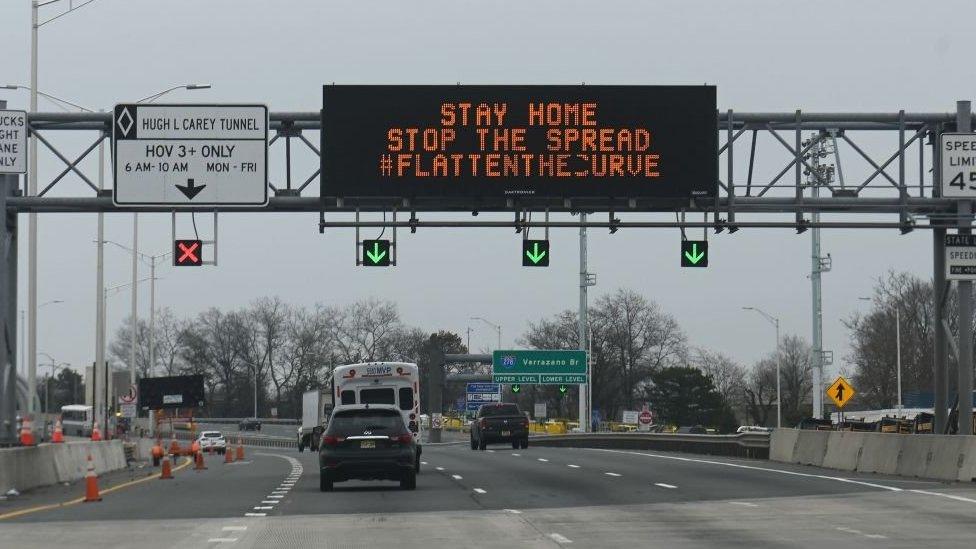Coronavirus: US car insurers refund drivers stuck at home
- Published

A major car insurer in the US is refunding millions of dollars to customers stuck at home during coronavirus lockdowns.
Allstate, the country's fourth biggest car insurer, said it would give back $600m (拢490m) in total to customers.
Another insurer, American Family Mutual, is also refunding customers, with cheques totalling $200m.
Both have seen a dramatic drop in accident claims as residents stay at home and off the roads.
The refunds come at a good time with millions of households suffering financially from lockdowns across the country.
Allstate will be paying customers back in two ways. Drivers in quarantine will receive refunds, while most customers will be given a 15% discount on monthly premiums for April and May. The discounts will apply to 18 million customers.
"This is fair because less driving means fewer accidents," said Tom Wilson, chief executive at Allstate. Its data showed driving mileage was down between 35% and 40%.
American Family Mutual said it would be making a one-time payment to all customers. "They are driving less and experiencing fewer claims. Because of these results, they deserve premium relief," said chief operating officer Telisa Yancy.
The insurer, which operates in 19 US states, estimates policyholders drove 40% fewer miles in the last three weeks of March.
"There are very few silver linings out there, but auto insurance companies are definitely one of them," said Paul Newsome, an analyst at investment bank Piper Sandler.
The refunds could put pressure on other car insurers globally to make refunds due to a drop in driving, particularly due to commuters now working from home. Quieter roads are likely to lead to fewer accidents and subsequent claims.
It's not clear yet whether travel insurers might follow suit on annual policies, given less people are travelling overseas.
- Published14 August 2023